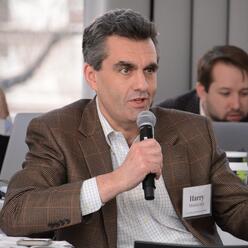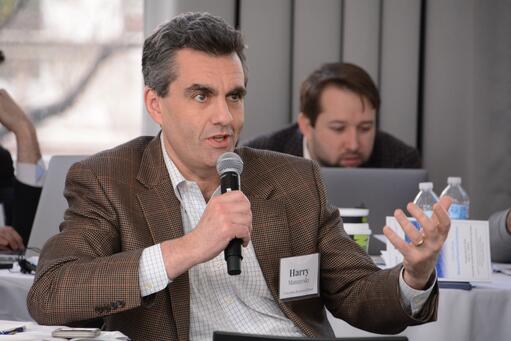The Master of Science in Financial Economics is a STEM eligible degree that requires four semesters (fall and spring) of full-time study at Columbia Business School.
Overview
The program begins in early September. To graduate, students complete a minimum of 16 full-term, graduate-level courses (48 credits), including a thesis seminar, in which they conduct a project on an industry-focused research question. Students also typically complete a summer internship for at least six weeks which involves working as an intern in a company or doing research assistance work for a faculty member. The internship will ideally be tied closely to a student's thesis.
Expected Coursework
Each semester, students take a rigorous set of PhD-level courses, supplemented with MBA- and other graduate-level courses. In students’ second, third, and fourth terms, they enroll in at least one and possibly two PhD or MBA electives. MSFE students take 10 full term PhD or PhD-equivalent courses in conduction with MBA level courses.
Students must elect to be in one of two tracks: the Academia Track or the Industry Track.
Fall of First Year
- Introduction to Econometrics and Statistical Inference II (B9324)
- Finance Theory I (B9302)
- Computing for Business Research (B9122)
- Introduction to Continuous Time Finance (B9336; half-term)
- Advanced Derivatives (B9337; half-term)
Optional Academia Track: Microeconomic Analysis I (B9206; half-term) and Microeconomic Analysis II (B9208; half-term)
Spring of First Year
- Financial Econometrics: Time Series (B9325; half-term)
- Financial Econometrics: Panel Data (B9326; half-term)
- Microstructure Theory (B9330; half-term)
- Big Data in Finance (B9334)
- Empirical Asset Pricing (B9331; half-term)
- Financial Accounting (B9030)
- Corporate Valuation and financial modeling (B9346)
Optional Academia Track: Microeconomic Analysis III (B9209; half-term), Microeconomic Analysis IV (B9211; half-term).
Typical Electives: Real Estate Finance (B8331), Debt Markets (B8308), Asset Management (B8323), Valuation and Financial Statement Analysis (B9010), Research on Investing with Fundamental Analysis (B9029).
Second Year
There are typically no required courses in the second year of enrollment in the MSFE program, although students will need to take additional PhD-level courses to fulfill the 10 PhD-level degree requirement. Most of the eligible courses will be offered from the Finance Division, and it is common for students to take PhD-level courses in other divisions of the Business School (e.g., Operations Research, Accounting), or in other departments/schools at the University (e.g., Computer Science, Statistics, the Law School, etc.). Most students also take advanced-level MBA courses.
Typical PhD Electives: Text Data in Finance (B9342), Empirical Asset Pricing II (B9320), Behavioral Finance (B9310), Corporate Finance Theory (B9317), Financial Intermediation (B9333; half-term); Information in Financial Markets (B9335; half-term)
Typical MS Electives: Real Estate Analytics (B8474), Quantitative Hedge Fund Strategies (B9339)
Thesis Seminar (B9398) and MS Thesis
All MSFE students complete a substantial research project in the Thesis Seminar under the supervision of a faculty member. The goal of this course is to gain experience producing research in quantitative finance. Students will design, execute, write, and present a thesis that involves original research on a topic of their choosing. The expectation is that students will submit their thesis and complete the program by the end of the fourth term.
Faculty
The MSFE program offers an opportunity to learn alongside faculty who are at the forefront of their disciplines. They are international influencers on business practices and strategies, continuing Columbia Business School’s legacy of developing the world’s top business leaders and strategists. Our faculty are exceptionally invested in student success and help create a collaborative culture that challenges students to push the boundaries of their expertise so they can contribute to today’s most innovative organizations.
The Masters of Science in Financial Economics program is led by Professor Harry Mamaysky, Faculty Director. Faculty members throughout the division participate in the program through application review, teaching, and thesis supervision.

